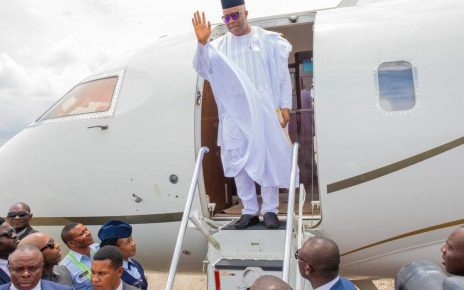By Udobong Akpanudoekpu
For many decades, successive government development efforts have either skated around the core challenges of the Niger Delta region or provided only a limited range of efforts that were mostly anchored with the respective state governments and with limited involvement of the federal government.
The persistent and festering development needs of the region and the increasingly deteriorating security conditions compelled the federal government to seek out a concerted political and development strategy to address the challenges in the Niger Delta. This became the entrance of the Ministry of Niger Delta Affairs (MNDA), which, through the President Muhammadu Buhari-led Federal Government, has not just maintained the essence of its creation, but has considerably improved upon its core mandate.
Little wonder Mr Umana Okon Umana hit the ground running as soon as he was appointed by President Buhari to saddle the affairs of the MNDA. He has painstakingly made the core mandate of the Ministry a roadmap for the enormous tasks of the development of the Niger Delta region.
This was clearly seen in Mr Umana Okon Umana’s Ministerial Action Plan, which included a Management Retreat, a Review of the non-connection of the NDDC Head Office to public power supply, Compilation/Publication of a list of all completed projects in the NDDC awaiting payments for public scrutiny, stakeholders’ forum to review the existing templates for project delivery, Prioritization of project execution and payments that deliver up the most impact for the country, Constitution of the board of the NDDC in line with extant law, amongst others.
In furtherance of the Ministerial Action Plan, the Umana Okon Umana-led MNDA geared up, through the collaborative efforts of its Technical Working Group with the participation of international donor agencies, to design a comprehensive short and medium term program framework for the Niger Delta Region.
The objective of these collaborative efforts is to prepare a working document that would facilitate a roadmap for coordinated national and international assistance to the Niger Delta under the leadership of the Ministry for Niger Delta Affairs.
One of the many gains of the collaboration is the fact that it recognizes and compliments the broad intervention efforts by states in the region and other national agencies such as the NDDC, international and local development partners including the oil companies. Another gain of the collaboration is the fact that it further seeks to set itself within evolving national development perspectives such as vision 20:20:20.
Yet another gain of this structured collaboration is the fact that involves the setting up of a Trust Fund under a joint coordination of the Ministry and UNDP to secure funds from partners and facilitate the provision of social services to the people. This initiative will ensure the achievement of maximum development impact in the region; avoid wastages and duplication of efforts.
The Umana Okon Umana-led MNDA’s collaborative efforts will also ensure the consolidation and sustenance of current peaceful atmosphere in the region. It will make militancy unattractive by creating jobs and opportunities for ex-militants and other youths in the region. The collaborative efforts will also aid the achievement of maximum development impact in terms of infrastructure development in the region.
Through its collaborative efforts, the Umana Okon Umana-led MNDA also envisages broad but complementary measures to tackle the development challenges in the Niger Delta region. One of these measures include social sector investment programme, which is proposed to cover community-based reintegration with emphasis on skills training, employment creation and promotion, enterprise development, agriculture and food security, alternative livelihood assistance; rehabilitation of basic community social and physical infrastructure in health, water and sanitation, environmental remediation; and community recovery process covering peace-building and reconciliation measure, youth leadership and development programs, restoration of capacity for traditional and local leadership.
There is also the public sector investment programme which focuses on large infrastructure development, creation of new urban areas and towns to serve as growth centers, inland waterways development, coastal roads constructions and revamping of large agro-plantations and local cottage industries.
Another of the measure is the institutional development programme which is aimed at improving institutional delivery processes, systems and capacity for the MNDA. The focus is to enhance the capacity of the Ministry to deliver the outcomes as envisaged under this programme.
The article was first published on VANGUARD.





